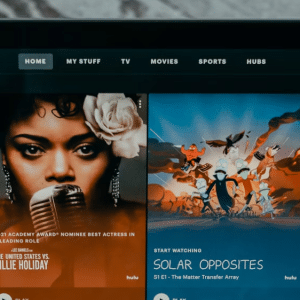Every new year is a new beginning, full of unlimited possibilities. 2023 is no different.
Do you want to start a new career this year? Are you up for a promotion at work against a colleague? Or are you longing to be recognized as a top employee for your company? Whatever your situation is, 2023 will provide you with a clean slate to chase after your professional goals.
To help you ensure you are the top candidate choice for an employer, we’ve rounded up the 10 most important work skills in 2023 you’ll need.

Read on below to learn what the top skills employers will look for in 2022 are.
1. Active Listening

Since the start of the COVID-19 pandemic, remote work has been a common practice for businesses across the country. Without engaging in human-to-human interaction, our active listening skills have gone out the window. Not only does being an active listener help strengthen our work relationships and friendships, but it also makes us better employees.
Active listening and communication go hand in hand. When you practice active listening, you become fully present in a conversation and are aware of what is being said to you. With remote work, many of us often turn off our Zoom cameras, mute our microphones, and do anything else but be present in the meeting.
Next time you find yourself in a virtual meeting, fight to urge to turn off your camera and instead be present, contribute, and write down some takeaway notes from the meeting to keep you focused.
2. Collaboration
For years, workplaces involved everyone in their own cubicle or assembly line station, laboring alone as part of a bigger system. Now, though, companies are focused on innovative and flexible work processes. Witness the shift from the factory-inspired “waterfall” method of management to the software-savvy agile project management methodology.

These days, collaboration is key — and employers want their people to be team players. You must be able to take others’ input into your work, often literally, and give constructive feedback. You also must be able to keep your own work in perspective to the overall goal and strategy in which the team is working.
Collaboration is more than working together: It’s working with others toward a common deliverable.
If you need to build your collaboration skills, you may need to rethink your approach to teamwork. Your manager or boss should offer team-building activities so that you can trust your coworkers and learn to co-develop ideas.
However, most of the work falls on you. Practice reaching out to coworkers for feedback, then accepting it without becoming defensive. Learn to delegate tasks rather than continuing to pile up your own plate.
3. Authenticity

When we practice authenticity in the workplace, our authenticity will carry over to other aspects of our lives. What keeps us from practicing authenticity is often the fear of how other colleagues, or your employer, will perceive you – but there is no need for that fear. Gone are the days when employers wanted their staff all to wear the same business attire, to just sit behind a desk and stay quiet all day long. Employers now want candidates who bring their unique perspectives and experiences to the team.
Being authentic also promotes a culture of loyalty. Naturally, people are drawn to others who exhibit self-confidence, and this is a culture that many companies desire.
When you show up to work as your true self, you’ll become happier all around; and when you’re happy you’ll do your best work.
4. Persuasion

As companies, especially startups, increasingly have flexible roles in which employees wear many hats, it’s more important than ever to have the power of persuasion. It isn’t just for sales reps anymore. The ability to persuade others, whether through oral or written communication, is crucial to getting ahead in your career.
If you need to build your persuasive skills, think back to the argumentative essays you were likely assigned in school. Remember the basic steps: Offer a proposition, support with evidence, and conclude with a firm statement and call-to-action.
To successfully persuade, avoid logical fallacies such as straw men or appeals to authority, and show that you have considered the opposite view.
5. Critical Thinking

If the last few years have taught companies anything, it’s how to pivot. It’s been a common theme for companies to settle on one decision only to then have to completely shift gears to another strategy.
When it comes to this, companies often look for candidates that exude problem-solving skills. That’s because these candidates usually can identify what is causing an issue, and then find a solution all on their own. Companies are relying on employees that don’t need as much handholding and who can think critically in a stressful environment.
Critical thinking is also what separates leaders from individual contributors. More colleagues will begin to approach you to bounce ideas off you, which your supervisor will notice.
Next time you encounter a problem, try to come up with a solution to present to your boss. This will show that you took the initiative to solve the problem and your boss will appreciate that.
6. Resilience

Society seems to move at a faster speed every day, and employees are working longer hours. Many people even take work home with them. This alarming trend is leading to feelings of exhaustion and job dissatisfaction. While it’s helpful to take breaks and other preventative measures against burnout, the best candidates and employees are able to manage their stress in a fast-paced environment — which most workplaces are, now. If you need to build your stress management skills, start by identifying your triggers.
Do you feel overwhelmed by email? Do you find yourself panicking over big presentations? Once you’ve identified what makes you stressed, take a new approach.
Designate special times of day to check email, rather than letting your Outlook ding you all day. Practice presentations with trusted family members before diving in. Simple changes to your workflow can make a big difference. Then, label stress when it happens and practice deep breathing or take a walk to help relieve it.
7. Attention to detail

When you are assigned work, you are often assigned it because your boss trusts you. Sometimes things slip through the cracks, but it’s never a pleasant email when your boss sends back a note saying there is an error with your work.
Having an eye for detail is a skill that is essential no matter what your job is. One small coding error can destruct a whole program. One small spreadsheet error can throw off another team’s larger data analysis project. When you focus on the details of every project, you’ll become more effective in the workplace because you’ll produce more work with fewer errors.
Before you press send or close out of a project, spend the extra 5 minutes to double-check your work. Taking that extra step will help you stand out to your employer because you’ll have fewer errors, and they will know they can count on you.
8. Emotional intelligence

The term emotional intelligence was made popular by journalist Daniel Goleman, who explained its importance in successfully navigating interpersonal communication. Recently, emotional intelligence has become a sought-after skill in the job market.
With evermore intergenerational workforces, a shift toward agile workflow, and increasing consumer demand for personalized experiences come a need to deeply understand others’ perspectives.
Emotional intelligence encompasses the ability to put yourself in another’s shoes, then talk to them in a way that achieves what you want. It’s an essential skill for management, sales, and many other roles. If you need to build your emotional intelligence skills, it can be helpful to take a special course devoted to this topic.
These interactive courses provide role-playing scenarios and coaching on how to read other people’s body language and social cues. It’s also helpful to expose yourself to other cultures and subcultures. Take time to attend events such as storytelling meetups, cultural festivals, and book clubs.
Practice “perspective-taking” when you talk to people in your life.
9. Creativity

Creativity isn’t just for artists: It’s the fundamental ability to come up with new ideas and bring them to life. Creativity makes you marketable because it suggests to employers that you can solve problems in an innovative way. Businesses need employees who can envision new ways to connect with customers, or manage workflows.
Creative people can come up with fresh new approaches to existing business assets — or come up with a whole new idea. If you need to build your creativity, don’t fret: It’s not as hard as you might think.
Everyone is creative, even if they’re not an artist or designer. Creativity is simply the capacity to make something new. Where most people stumble is in their ability to overcome their inner critic or escape the ways that they’ve set in. Doing puzzles, reading, and brainstorming are all great ways to get the creative juices flowing.
10. Advocacy

Employers are always looking for employees that can serve as advocates for their brand. Employers need to hire a workforce of individuals who are proud to work for their brand. Think about it. Would you want a disgruntled employee to be the first voice a customer speaks to? Or would you want an employee who is an advocate for your brand to be the first person who speaks with a customer?
What makes a sale is the people, not the products. It doesn’t matter what drives people to your company; what turns them into customers are the employees that represent a company. What an employer is looking for are people that can sell and promote a company, even if they are not on the sales team.
Show up to an interview with an answer to why you are drawn to the company and why you want to work there. Once you’re hired, show up to work excited to be there every day – and if you’re having a bad day, put on your poker face.
Wrapping Up
With these 10 skills under your belt, you’ll have the so-called soft skills that employers will desire for 2022. These attributes can set you apart from the crowd of people that you would otherwise match in terms of your education, training, and “hard” skills.
Employers want well-rounded individuals on their team. They want employees who can help them achieve their own business goals for 2022 and who can push the brand forward. You can be one of these individuals if you practice these 10 skills this year.








